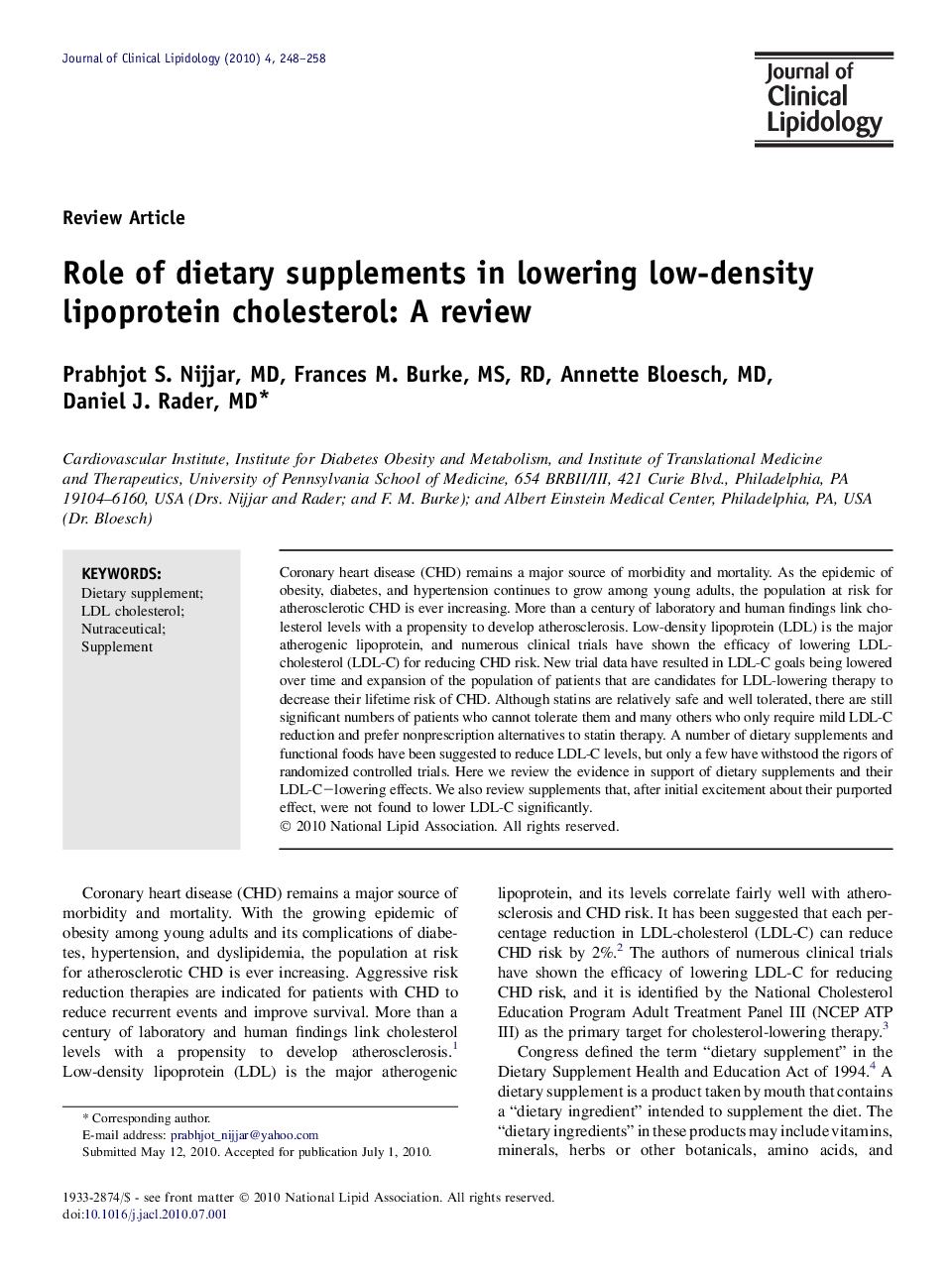| Article ID | Journal | Published Year | Pages | File Type |
|---|---|---|---|---|
| 2967020 | Journal of Clinical Lipidology | 2010 | 11 Pages |
Coronary heart disease (CHD) remains a major source of morbidity and mortality. As the epidemic of obesity, diabetes, and hypertension continues to grow among young adults, the population at risk for atherosclerotic CHD is ever increasing. More than a century of laboratory and human findings link cholesterol levels with a propensity to develop atherosclerosis. Low-density lipoprotein (LDL) is the major atherogenic lipoprotein, and numerous clinical trials have shown the efficacy of lowering LDL-cholesterol (LDL-C) for reducing CHD risk. New trial data have resulted in LDL-C goals being lowered over time and expansion of the population of patients that are candidates for LDL-lowering therapy to decrease their lifetime risk of CHD. Although statins are relatively safe and well tolerated, there are still significant numbers of patients who cannot tolerate them and many others who only require mild LDL-C reduction and prefer nonprescription alternatives to statin therapy. A number of dietary supplements and functional foods have been suggested to reduce LDL-C levels, but only a few have withstood the rigors of randomized controlled trials. Here we review the evidence in support of dietary supplements and their LDL-C−lowering effects. We also review supplements that, after initial excitement about their purported effect, were not found to lower LDL-C significantly.
